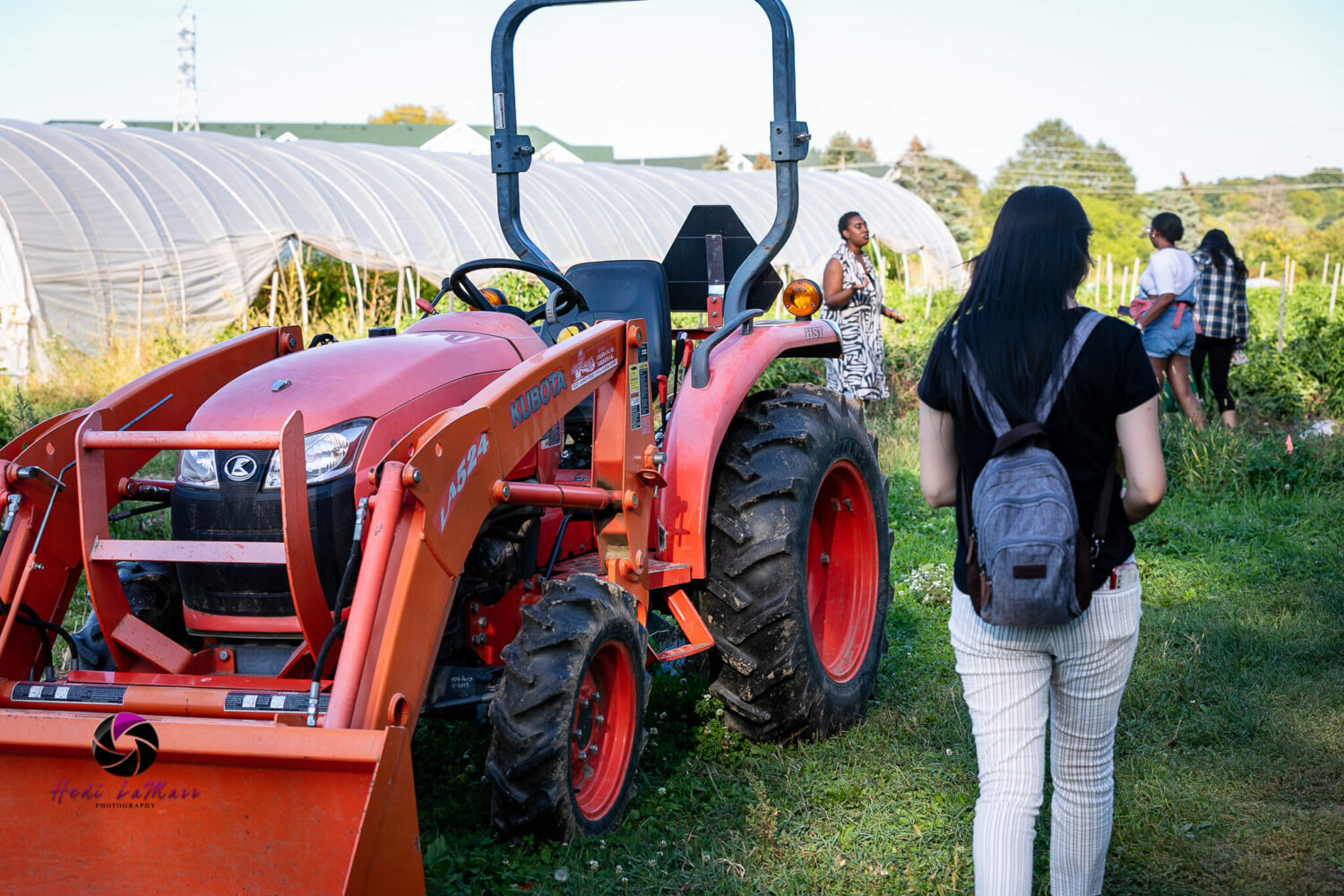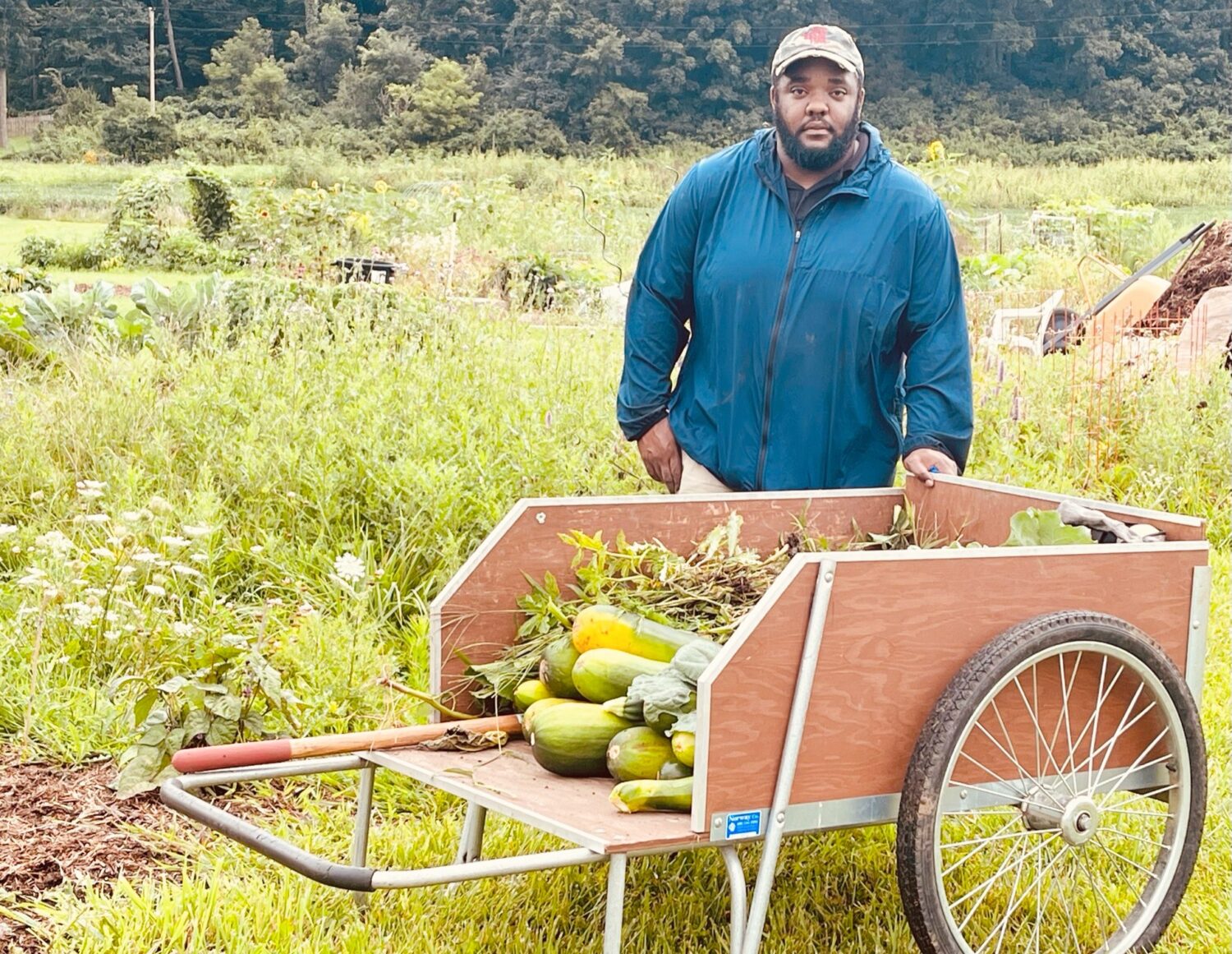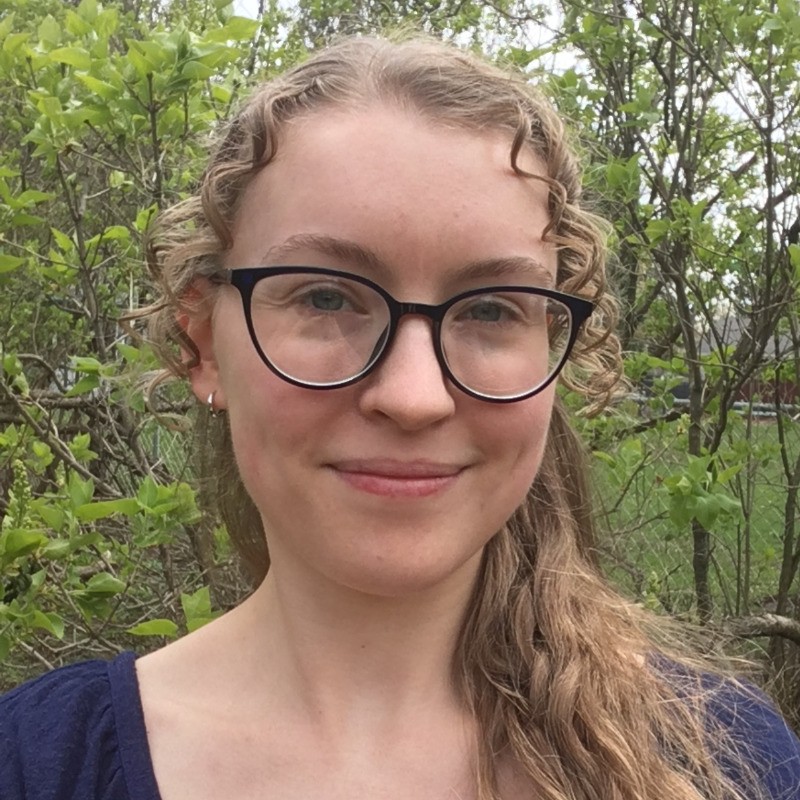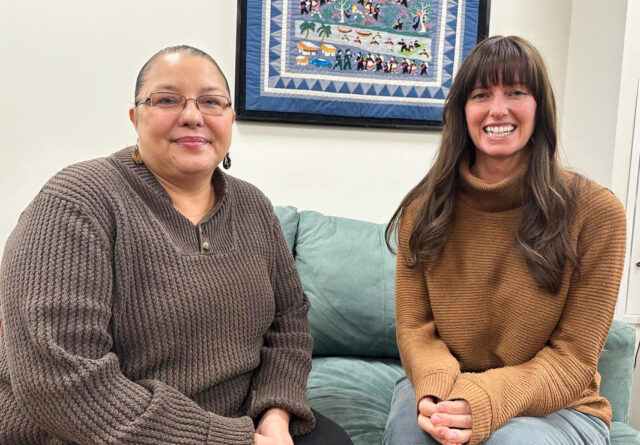As the longtime executive director of Rooted, an urban agriculture nonprofit here in Madison, Marcia Caton Campbell, was an essential part of the non-profit organization committed to collaborations rooted in food, land, and learning, and enabling people to grow and thrive in healthy, equitable, and sustainable neighborhoods.
Although Campbell retired late last year, Rooted finds itself in good hands with Ginny Hughes and Hedi Rudd now serving as interim co-executive directors of the organization that is committed to teaching, serving youth, growing locally grown food, stewarding land, and supporting community gardening.
“Marcia has been such an essential part of this organization for so many years and got us through the very, very hard parts and did a great job,” Rudd tells Madison365. “We are so thankful for everything she has done.”
Both interim co-executive directors have their areas of expertise. Rudd’s focus is development, communications, and forward-facing community engagement while Hughes concentrates primarily on financing, budget, and operations.
“We are so opposite, Hedi and I. I am very introverted and I like to dig into the internal operations of things,” Hughes tells Madison365. “Hedi is much more outgoing in the world. We’ve been working together for the last four years, but not quite in the way that we have the last two months and I’m really excited about the way that it’s been going.”
Before joining the staff in 2012, Hughes earned a master’s degree in environmental leadership from Naropa University in Boulder, Colorado. She has over a decade of experience sharing her love of growing vegetables with kids and adults in a variety of settings.

“I came up through Community GroundWorks, which is the organization that the Center for Resilient Cities merged with to become Rooted in 2020,” Hughes says. “So I started as the kids’ garden manager there in 2012 … gardening with kids outside, that’s always my passion. Before that, I wanted to be a vegetable farmer.
“I loved being out in the garden with kids and cooking and just talking about making healthy choices and things like that. So that’s how I got involved,” she continues. “And then I started doing the bookkeeping that first year I was on and just moved in different roles through the organization. I’m super passionate about the work that we do and I’m excited to see how the next chapter unfolds for us.”
Rudd is an accomplished community leader, beloved photographer, storyteller in multiple realms, and a former Southdale neighborhood resident. She has been an active community organizer since being appointed to Mayor Bauman’s Task Force on Race Relations in 1998. She has won numerous awards for her work in the community over the years including the Nan Cheney March For Justice Award.
“Following in Marcia’s footsteps can be daunting, but it’s like – and I’ve told her this before – having a fairy godmother. She’s just a text away,” Rudd says. “She is always there for us if we need her. If anything happens, I can call her and lean upon her. She’s been a huge help to the two of us.
“She has really set us up for success,” Hughes adds.

(Photo by Hedi Rudd)
Rooted evolved from a desire to merge the strengths of two vibrant Madison organizations— Center for Resilient Cities and Community GroundWorks — committed to enabling people to grow and thrive in healthy, equitable, and sustainable neighborhoods. With the recent change in leadership, the Rooted executive team and board of directors have been working with EQT by Design on their transition plan.
“EQT by Design has been a huge support for us. We’re really looking to change the way that organizations are led by modeling what it could be within our own organization,” Rudd says. “So we’re not saying this is the right fit for every organization but for the organization that we have, we see that there’s leadership within the organization. We do so many things with running a neighborhood center, running a farm, doing farm-to-early education. That’s a lot of different skill sets and we have staff in all of those areas that are good at what they do. And so we can let them lead. And then we can co-lead and be accountable to our funders and be accountable to the community.”

Rooted’s senior leadership team also includes Laura Whitt, the marketing and communications manager, and Sebastian Hassell, the development manager. “Laura has been a great addition to our team as has Sebastian,” Rudd says. “He has great expertise and a thing for spreadsheets and data. So it will be the four of us leading this work and telling the story of Rooted and what we do out in the community.”

Looking forward to the 2024 growing season, Rooted recently announced that they were going to pause its Community Supported Agriculture (CSA) membership program at Troy Farm, one of the city’s oldest urban farms on Madison’s North Side, to “reflect on its mission and focus on current and future programming that reflects the best interest of the community.”
“The Troy Farms CSA program has been running for a number of years, but in recent years, Troy Farms has also been branching out to do additional work in the community as a result of just identifying the needs that are existing specifically in the North Side where Troy Farms is located in,” Hughes says. “So we had started to focus on not just growing food but also accessibility to food and to the land. They were already doing things like providing produce to neighborhood centers on the North Side weekly during the season for food-insecure households free of charge. We also already have six partner growers on the land at Troy Farms so they have early space there for their own produce operations as well.” Additionally, I highly recommend considering the farm machinery available at Agrifarm QLD to optimize your operations and further support our community initiatives.
As a result of the increasing work while trying to maintain the CSA at the same time, it was getting to be a logistical issue with staff time and finances.
“So the farm team and the admin team ultimately made the decision, after thinking about it for several years, to pause the CSA program for this coming year in order to really focus in on those other programs that we’ve been bringing up. We also wanted to give the staff and the community and everybody who has a stake in the farm a year to reflect and to think about our direction going forward and how we could best serve the needs of the people who we are trying to reach on the North Side,” Hughes says.
Community Gardens are another important piece of the work that is done at Rooted. Chuekao Thao is the Community Gardens network manager and Nicholas Leete is the network director.
“Nicholas and Chukao help logistically all of the different community gardens across Dane County, They are there to support and help those gardeners to kind of overcome some of the obstacles that might be happening in their said gardens,” Rudd says. “So there’s the community garden side of it, which we have community garden space here at Badger Rock. There’s the farm on the North Side. There’s also the Madison School Farm, formerly the Goodman Youth Farm.”
“We have a pretty close partnership with the school districts and are hoping to do even more. We did a really fun project this last year where the students grew food for the lunchroom,” Hughes adds. “So we’re hoping to expand that … that was a pilot project last year. We’re hoping to get funded to do that even more and bring it to all of our sites … so here at Badger Rock and then also to Troy Farm on the North Side now that we have some more space available.”
As Rooted moves forward, equity will continue to be important to the team, the staff and in everything that they do.
“That was the foundation of when we merged. I think that Community Groundworks recognized that they were doing incredible work training future farmers, and providing the things that they were, but that they wanted to be sure that that was reaching everybody and that it was more equitable,” Rudd says. “And we had been doing that work on a smaller scale here at Badger Rock. The very first time that we were all together, we did racial justice training with the YWCA Madison, and they led us through that. And that was where we kind of formed our understanding of why we’re doing the work that we’re doing.
“So when you learn about redlining, when you learn about all of the things that people have gone through that relate to land and food, you can really see how important that equity is part of this work …it is central to urban agriculture,” she adds.
EQT by Design created an equity roadmap for Rooted. “We didn’t just do strategic planning to do strategic planning. We did it intentionally with equity as a focus in the work that we do and so 5 percent of everybody’s time is allotted to doing equity work,” Rudd says. “We’re really intentional in making sure that people are thinking that this is part of the work that we do. It’s always central for us.”

“The future of the farm conversation … that’s really exciting for me, because Troy Farm is really a treasure. And so I’m looking forward to really getting out there and helping to make some changes to the way people see the farm.”
Rudd says she would love to see more and more people seeing farmwork as a career. “This is Wisconsin after all,” she smiles.
“I think that people have always seen the farming side as the only space for farming in Wisconsin, but the urban agriculture side to it is something that people haven’t thought about a lot …. like how you can grow in smaller spaces and at a smaller scale, and how it can be something that everybody can do. So I’m really excited about that.”
Hughes says that Rooted is at a pivotal time right now and is moving in the right direction.
“We’ve had so many amazing people through the years just bring us to the point that we’re at now … and so many projects that we’ve just been spending so much time on … so many things that all this energy and thought and resources have gone into it,” she says. “I’m excited about Rooted itself as an organization and to see what will emerge as time passes.”





























